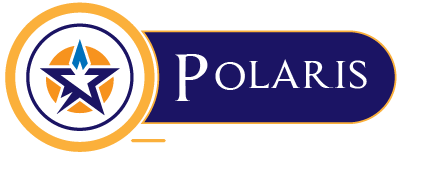Introduction
In the realm of medical research and diagnostics, the demand for specialized antibodies continues to grow. Among these, mammalian polyclonal IgG antibodies have emerged as a vital tool for a wide range of applications. Their versatility and effectiveness make them a sought-after resource for various scientific disciplines. Today, we delve into the captivating world of the mammalian polyclonal IgG antibody market, exploring its overview, growth factors, and diverse applications.
What is a Mammalian Polyclonal IgG Antibody?
Mammalian polyclonal IgG antibodies are derived from multiple animals, where the immune response is stimulated by a specific antigen. These antibodies provide a diverse range of binding sites, ensuring efficient recognition and binding to various targets. This adaptability and specificity make them highly valuable in the field of research and diagnostics.
Market Overview and Statistics
The mammalian polyclonal IgG antibody market has been experiencing remarkable growth in recent years. According to a report by Polaris Market Research, the market is projected to witness a CAGR of 5.5% during the forecast period from 2023 to 2032. The increasing prevalence of chronic diseases, rising investment in research and development, and advancements in biotechnology are the key drivers propelling the market’s growth.
Factors Contributing to Market Growth
Several factors contribute to the expanding demand for mammalian polyclonal IgG antibodies:
Growing Research and Development: The continuous pursuit of innovative solutions in the healthcare and life sciences sectors drives the demand for polyclonal IgG antibodies. These antibodies play a crucial role in the development of novel therapies, drug discovery, and disease diagnosis.
Rising Prevalence of Chronic Diseases: The global burden of chronic diseases has been on the rise, necessitating advanced diagnostic tools and targeted therapies. Mammalian polyclonal IgG antibodies enable accurate identification and characterization of disease markers, aiding in effective treatment strategies. This has contributed in the growth of the mammalian polyclonal IgG antibody market.
Technological Advancements: The emergence of cutting-edge technologies, such as recombinant DNA and hybridoma techniques, has revolutionized the production of polyclonal IgG antibodies. These advancements have improved antibody quality, increased production scalability, and reduced time and cost.
Applications of Polyclonal IgG Antibody
Mammalian polyclonal IgG antibodies find applications across diverse scientific domains. Some notable applications include:
- ELISA: Enzyme-linked immunosorbent assays (ELISA) utilize polyclonal IgG antibodies to detect and quantify specific antigens in various samples, facilitating disease diagnosis and biomarker detection.
- Immunoturbidometry: This technique employs polyclonal IgG antibodies to measure the concentration of various analytes in biological fluids, aiding in clinical diagnostics and drug monitoring.
- Antibody Identification: Polyclonal IgG antibodies are instrumental in identifying and characterizing specific antibodies present in patient samples, crucial for blood typing and cross-matching in transfusion medicine.
- Immunoelectrophoresis: This technique combines electrophoresis with polyclonal IgG antibodies to separate and identify proteins, allowing researchers to analyze complex mixtures and study disease-associated protein profiles.
- Immunohistochemistry: Polyclonal IgG antibodies are utilized in immunohistochemical staining, enabling the visualization and localization of specific proteins in tissue samples and aiding in diagnosing and researching various diseases.
- Immunocytochemistry: Like immunohistochemistry, polyclonal IgG antibodies detect and visualize specific proteins within cells, facilitating cellular research and disease investigation.
- Western Blotting: This technique relies on polyclonal IgG antibodies to detect and analyze proteins separated by gel electrophoresis, providing crucial insights into protein expression and molecular interactions.
Conclusion
The mammalian polyclonal IgG antibody market continues to grow substantially, driven by the increasing demand for specialized antibodies across various scientific disciplines. With advancements in biotechnology, rising chronic disease prevalence, and ongoing research and development activities, the potential applications of these antibodies are boundless. As we explore the remarkable versatility and expanding market of mammalian polyclonal IgG antibodies, we open doors to new possibilities in medical research, diagnostics, and the pursuit of better healthcare solutions.

